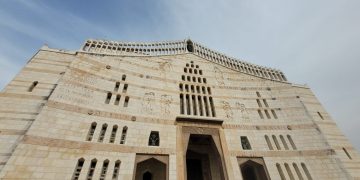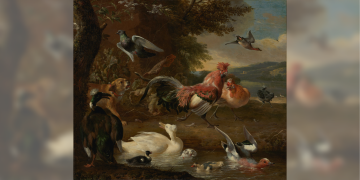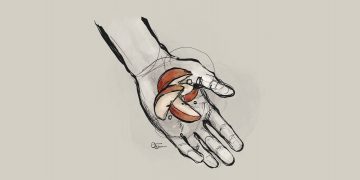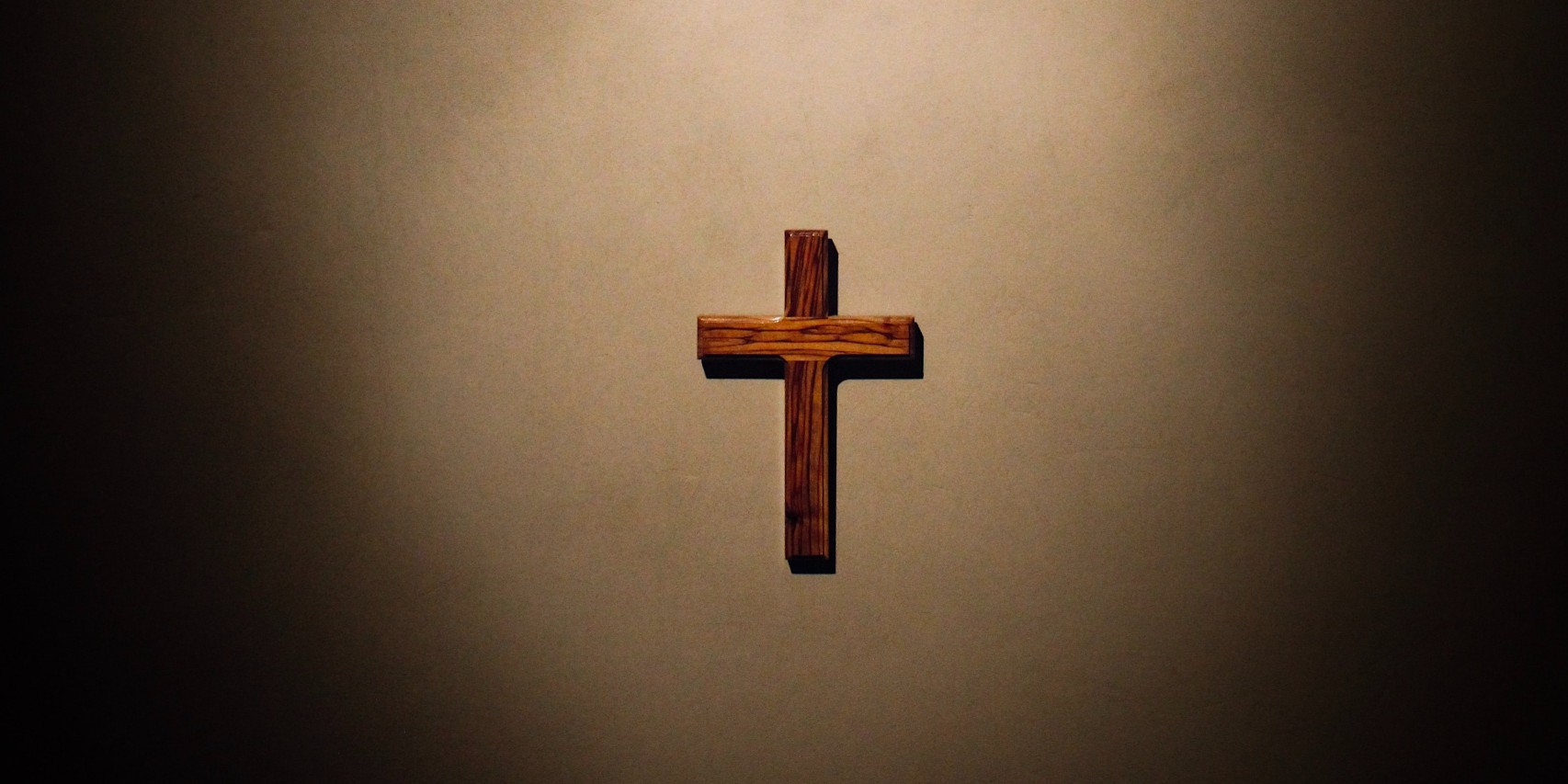(Read previous parts: Part 1, Part 2, Part 3, Part 4)
We have finally come to the end of our journey. While contemporary opinions on this subject have popularised the view that the Trinity was broken, it doesn’t really hold up under biblical scrutiny. We end our journey by examining the most important piece of evidence, and that is Psalm 22.
Part 5: The Use of Psalm 22
By far the strongest defense of the unity of the Trinity is found in Psalm 22. It is actually from this Psalm that Jesus quotes directly from, and we can be certain that He is quoting the Psalm and not making a personal exclamation for two reasons: His use of “My God” and the circumstances of His crucifixion.
By far the strongest defense of the unity of the Trinity is found in Psalm 22. It is actually from this Psalm that Jesus quotes directly from, and we can be certain that He is quoting the Psalm and not making a personal exclamation for two reasons: His use of “My God” and the circumstances of His crucifixion.
Psalm 22 reads, “My God, my God, why have you forsaken me? Why are you so far from saving me, so far from my cries of anguish?” (Psalm 22.1) While some theologians caution against reading the whole of Psalm 22 into Jesus’ words, few would disagree with the fact that Jesus is quoting the Psalm. Because this is the first time that Jesus refers to His Father as “my God.” It seems to make the most sense then that His formalized reference to the Father as “my God” was actually a direct quotation from scripture.
But was Jesus intending to quote the whole Psalm or was He only using the first verse that was most pertinent to His circumstance? It would appear at first glance that the first two verses of the Psalm actually support the abandonment of Christ. However other sections of the Psalm point eerily to the rest of the passion narrative:
- “All who see me mock me; they hurl insults, shaking their heads. ‘He trusts in the Lord,’ they say, ‘let the Lord rescue him. Let him deliver him, since he delights in him’” (Psalm 22.7-8). This was explicitly demonstrated in Mark 15.27-30, where people hurled insults at Him and taunted Him to come down from the cross.
- “Dogs surround me, a pack of villains encircles me; they pierce my hands and my feet. All my bones are on display; people stare and gloat at me. They divide my clothes among them and cast lots for my garment.” (Psalm 22.16-18) Again the allusions to the passion narrative are uncanny. In Mark 15.24 it says, “they crucified him. Dividing up his clothes, they cast lots to see what each would get.”
The parallels to the passion narrative are not limited to the first line of the Psalm, but instead the entire Psalm. “The connection between the cry of dereliction and Psalm 22, we clearly see, is not limited to Jesus’ citation of the first lines, important though that is. Rather, the whole narrative clearly and strongly echoes the Psalm throughout” (McCall, Forsaken, 41).
Clearly Mark and Matthew are trying to communicate something with this Psalm because they go through great amounts of effort to show the parallels to it, and perhaps it is answered in verse 24 of the Psalm. “For he has not despised or scorned the suffering of the afflicted one; he has not hidden his face from him but has listened to his cry for help.” (Psalm 22.24)
Clearly Mark and Matthew are trying to communicate something with this Psalm because they go through great amounts of effort to show the parallels to it.
If the entirety of Psalm 22 is understood to be in view here, then there is significant support for the unity of the Trinity in the crucifixion, as well as an unbroken bond between the Father and Son. “While not detracting at all from Jesus’ suffering, it is hard to understand why Mark would work so hard at evoking Ps. 22 if he did not also expect his informed readers to know exactly what was coming next: a startling reversal and deliverance” (Watts, Mark, 236)
Psalm 22 is a game-changer in this current debate. Very few theologians disagree on the premise that Jesus quotes the Psalm. More disagreement is had about whether the whole Psalm is in view or whether Jesus had only the first line in view. It would seem that with the numerous parallels to the events of His crucifixion, Jesus had the whole Psalm in view, which then leads to the natural conclusion that in Jesus saying, “My God, my God, why have you forsaken me”, He has in mind that the Father has neither despised nor forsaken Him and that the Father hears His cry for help.
It would seem that with the numerous parallels to the events of His crucifixion, Jesus had the whole Psalm in view, which then leads to the natural conclusion that in Jesus saying, “My God, my God, why have you forsaken me”, He has in mind that the Father has neither despised nor forsaken Him and that the Father hears His cry for help.
Conclusion
Was the Trinity broken at the crucifixion? Did God the Father cease to be a Father when He forsook His Son? Did the Son cease to be the Son when He was forsaken?
There is a strong desire, especially in contemporary Christian culture, to view the crucifixion as a fracturing of the eternal Godhead. Such a thought is convicting, and humbling, and makes us extremely appreciative of all that was done on the cross. However, the ramifications of such thinking can be dangerous.
At stake is the very nature of the triune God. The triune God cannot cease to be triune otherwise God is no longer God. On the flip side, “if what makes the Trinity one God rather than three gods is their relatedness, and if this relationally is lost or destroyed, then we lose all claims to monotheism” (McCall, Forsaken, 36). The choices we are left with, if we do affirm a breaking of the Trinity, is either no God, or three gods.
The triune God cannot cease to be triune otherwise God is no longer God.
That being said, there is little “mystery” as to why Mark and Matthew highlight Jesus’ cry of abandonment. The point they are trying to make is clear and obvious. Psalm 22 is quoted because in the midst of Jesus’ suffering, the Gospel writers want the audience to know that the Father will not turn His face away, nor will He despise or scorn Jesus. Instead God hears the cry of His Son, and we as the audience are left with one response: the very last line of the Psalm 22 reads:
“Future generations will be told about the Lord. They will proclaim his righteousness declaring to a people yet unborn: He has done it!” (Psalm 22.30-31)
We are to go and tell future generations about what has been accomplished on the cross. Sin and death conquered on account of the sacrifice Jesus made as our substitute. That is good news!































































